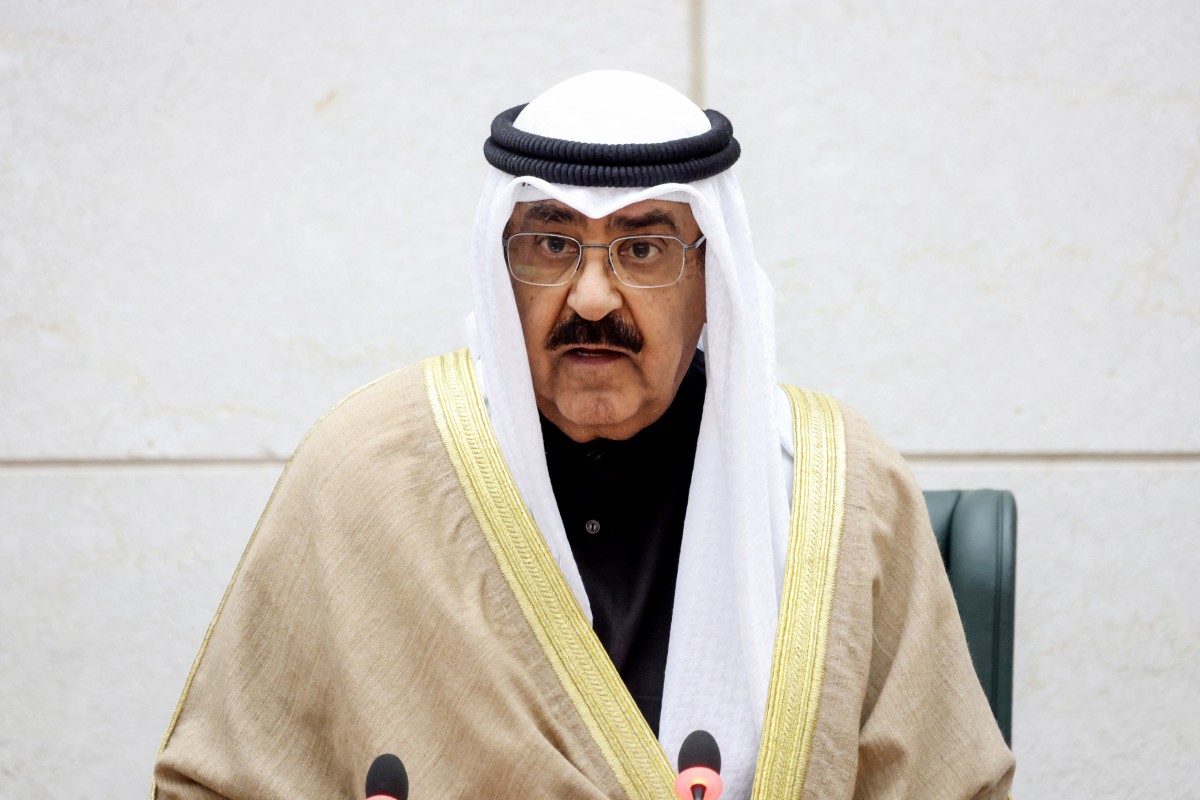Kuwait City, Kuwait – Kuwait’s new emir Sheikh Meshal al-Ahmed al-Sabah on Wednesday criticized parliament and cabinet for harming national interests as he was formally sworn in before lawmakers as the country’s 17th ruler.
Officially taking over from his half-brother Sheikh Nawaf, who passed away on Saturday, Sheikh Meshal is faced with the task of pulling the country out of longstanding political paralysis and reforming a bloated public sector that have turned Kuwait into one of the Gulf’s most laggard states.
“I have stressed in my previous speeches that there are national obligations that must be fulfilled,” the 83-year-old ruler told lawmakers after he took the oath of office.
But “we have not noticed any change or correction” from parliament and cabinet, he added.
Instead, the two entities have “harmed the interests of the people and the country,” he said.
His predecessor’s short-lived rule was marked by a protracted political standoff that saw successive parliament dissolutions and cabinet resignations.
Sheikh Meshal further pointed to public appointments and promotions that “don’t meet the simplest standards of justice and fairness”.
He pledged to temporarily halt promotions and new appointments, after already signing a decree on December 5 ordering a three-month pause in state hiring that is open to extension.
“We have warned on many occasions that crises, challenges and dangers surround us,” Sheikh Meshal said, underscoring “the necessity to reconsider our current reality in all its aspects”.
Bitter disputes
Shortly after the speech, the government submitted its resignation in a procedural step to allow for the naming of a new prime minister.
Kuwait, which borders Saudi Arabia and Iraq, is home to seven percent of the world’s crude reserves. It has little debt and one of the strongest sovereign wealth funds in the world.
However, it suffers from constant disputes between elected lawmakers and cabinets installed by the ruling Al-Sabah family, which maintains a strong grip over political life, despite a relatively robust parliamentary system in place since 1962.
The deadlocks have prevented lawmakers from passing reforms to diversify the economy, while repeated budget deficits and low foreign investment have added to the crises.
Bader al-Saif, a professor at Kuwait University, described Sheikh Meshal’s address as “one of the strongest first speeches given by an incoming ruler”.
“Most significant and unprecedented is the emir’s clear rebuke of government and parliament,” he said in a post on X, formerly Twitter.
Sheikh Meshal spent many years in the interior ministry and was deputy chief of the Kuwait National Guard from 2004 to 2020.
During his long career in Kuwait’s security and intelligence apparatus, he kept his distance from the often bitter disputes within the royal family.
His first major test as emir will be selecting a crown prince amid speculation over whether he will usher in a new generation of rulers.
He will have a year to make his pick, but much attention will be on whether he will be able to match the seven-day record set by his predecessor.
The new emir will also have to select a prime minister to form a new cabinet in a move that will set the tone for relations with the opposition-led parliament, hailed as the most active in the Gulf.

